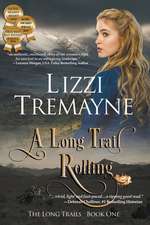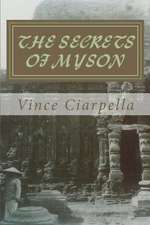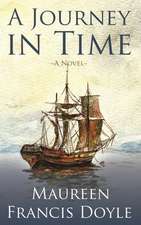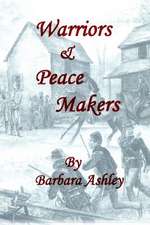New York
Autor Edward Rutherfurden Limba Engleză Paperback – iul 2010
| Toate formatele și edițiile | Preț | Express |
|---|---|---|
| Paperback (2) | 87.23 lei 23-34 zile | +41.15 lei 6-10 zile |
| Random House – iul 2010 | 87.23 lei 23-34 zile | +41.15 lei 6-10 zile |
| BALLANTINE BOOKS – 31 aug 2010 | 135.27 lei 3-5 săpt. |
Preț: 87.23 lei
Preț vechi: 99.48 lei
-12% Nou
Puncte Express: 131
Preț estimativ în valută:
16.69€ • 17.22$ • 14.13£
16.69€ • 17.22$ • 14.13£
Carte disponibilă
Livrare economică 14-25 februarie
Livrare express 28 ianuarie-01 februarie pentru 51.14 lei
Preluare comenzi: 021 569.72.76
Specificații
ISBN-13: 9780099509387
ISBN-10: 0099509385
Pagini: 1020
Dimensiuni: 131 x 198 x 50 mm
Greutate: 0.7 kg
Editura: Random House
Colecția Arrow Books
ISBN-10: 0099509385
Pagini: 1020
Dimensiuni: 131 x 198 x 50 mm
Greutate: 0.7 kg
Editura: Random House
Colecția Arrow Books
Notă biografică
Edward Rutherfurd
Recenzii
“Sweeping . . . History has never been so fun to read.”
—USA Today
“In the tradition of James Michener, Rutherfurd unfurls more than three centuries of the city’s history as seen through the eyes of the descendants of [the] van Dyck and Master [families]—and the many other colorful characters he introduces along the way.”
—Detroit Free Press
“Incredible storytelling . . . Readers will fall in love with the iconic city.”
—The Post and Courier
“[A] riotous, multilayered portrait.”
—The Washington Post
Extras
1664
So this was freedom. The canoe went with the river's tide, water bumping against the bow. Dirk van Dyck looked at the little girl and wondered: Was this journey a terrible mistake? Big river, calling him to the north. Big sky, calling him to the west. Land of many rivers, land of many mountains, land of many forests. How far did it continue? Nobody knew. Not for certain. High above the eagles, only the sun on its huge journey westward could ever see the whole of it. Yes, he had found freedom here, and love, in the wilderness. Van Dyck was a large man. He wore Dutch pantaloons, boots with turnover tops, and a leather jerkin over his shirt. Now they were approaching the port, he had put on a wide-brimmed hat with a feather in it. He gazed at the girl. His daughter. Child of his sin. His sin for which, religion said, he must be punished. How old was she? Ten, eleven? She had been so excited when he'd agreed to take her downriver. She had her mother's eyes. A lovely Indian child. Pale Feather, her people called her. Only her pale skin betrayed the rest of her story. "Soon we shall be there." The Dutchman spoke in Algonquin, the language of the local tribes. New Amsterdam. A trading post. A fort and little town behind a palisade. But it was important, all the same, in the worldwide com mercial empire of the Dutch.
Van Dyck was proud to be Dutch. Their country might be small, but the indomitable Netherlanders had stood up to the mighty, occupying Spanish Empire, and won their independence. It was his people who had constructed the great dykes to reclaim huge tracts of fertile land from the rage of the sea. It was the maritime Dutch who had built up a trading empire that was the envy of the nations. Their cities—Amsterdam, Delft, Antwerp—where the rows of tall, gabled houses lined stately canals and waterways, were havens for artists, scholars and freethinkers from all over Europe, in this, the golden age of Rembrandt and Vermeer. Yes, he was proud to be Dutch.
In its lower reaches, the great river was tidal. This morning it was flowing down toward the ocean. During the afternoon, it would reverse itself and flow back toward the north.
The girl was looking forward, downstream. Van Dyck sat facing her, his back resting against a large pile of skins, beaver mostly, that filled the center of the canoe. The canoe was large and broad, its sides made of tree bark, sturdy but light. Four Indians paddled, two fore, two aft. Just behind them, a second boat, manned by his own men, followed them down the stream. He'd needed to take on this Indian canoe to carry all the cargo he had bought. Upriver, the late-spring sky was thunderous; above them, gray clouds. But ahead, the water was bright.
A sudden shaft of sunlight flashed from behind a cloud. The river made a tapping sound on the side of the boat, like a native drum giving him warning. The breeze on his face tingled, light as sparkling wine. He spoke again. He did not want to hurt her, but it had to be done.
"You must not say I am your father."
The girl glanced down at the little stone pendant that hung around her neck. A tiny carved face, painted red and black. The face hung upside down, Indian fashion. Logical, in fact: when you lifted the pendant to look at it, the face would be staring at you the right way up. A lucky charm. The Masked One, Lord of the Forest, the keeper of nature's balance.
Pale Feather did not answer him, but only gazed down at the face of her Indian god. What was she thinking? Did she understand? He could not tell.
From behind the rocky cliffs that stretched up the western bank like high, stone palisades, there now came a distant rumble of thunder. The little girl smiled. His own people, the Dutchman thought, as men of the sea, had no liking for thunder. To them it brought harms and fears. But the Indians were wiser. They knew what it meant when the thunder spoke: the gods who dwelt in the lowest of the twelve heavens were protecting the world from evil.
The sound echoed down the river, and dissolved in space. Pale Feather let the pendant fall, a tiny gesture full of grace. Then she looked up.
"Shall I meet your wife?"
Dirk van Dyck gave a little intake of breath. His wife Margaretha had no idea he was so near. He'd sent no word ahead of his return. But could he really hope to bring the girl ashore and conceal her from his wife? He must have been mad. He twisted round, awkwardly, and stared down the river. They had already reached the northern end of the narrow territory called Manhattan, and they were running with the tide. It was too late to turn back now.
Margaretha de Groot took a slow draw on the clay pipe in her sensual mouth, looked at the man with the wooden leg in a considering kind of way, and wondered what it would be like to sleep with him.
Tall, upright, determined, with piercing eyes, he might be gray, and well into middle age now, but he was still indomitable. As for the peg leg, it was a badge of honor, a reminder of his battles. That wound might have killed some men, but not Peter Stuyvesant. He was walking down the street with surprising speed. As she gazed at the hard, polished wood, she felt herself give a tiny shudder, though he did not see it.
What did he think of her? He liked her, she was sure of that. And why shouldn't he? She was a fine, full-bosomed woman in her thirties with a broad face and long blonde hair. But she hadn't run to fat, like many Dutchwomen. She was still in good trim, and there was something quite voluptuous about her. As for her liking for a pipe, most of the Dutch smoked pipes, men and women alike.
He saw her, stopped, and smiled.
"Good morning, Greet." Greet. A familiar form of address. Like most Dutchwomen, Margaretha van Dyck was normally known by her maiden name, Margaretha de Groot; and that is how she had expected him to address her. Of course, he'd known her since she was a girl. But even so . . . He was normally such a formal man. She almost blushed. "You are still alone?"
She was standing in front of her house. It was a typical Dutch town house, a simple, rectangular dwelling, two stories high, with wooden sides and its narrow, gabled end turned to the street. This end displayed a handsome pattern of black and yellow brick. A short stairway led up to the street door, which was large and protected by a porch. This was the Dutch "stoop". The windows were not large, but the ensemble was made impressive by the high, stepped gable that the Dutch favored, and the roof ridge was crowned with a weathervane.
"Your husband is still upriver?" Stuyvesant repeated. She nodded. "When will he return?"
"Who knows?" She shrugged. She could hardly complain that her husband's business took him north. The trade in furs, especially the all-important beaver pelts, had been so great that the local Indians had hunted their animals almost to extinction. Van Dyck often had to go far north into the hinterland to get his supplies from the Iroquois. And he was remarkably successful.
But did he have to stay away so long? In the early days of their marriage, his journeys had only taken a couple of weeks. But grad ually his absences had extended. He was a good husband when he was at home, attentive to her and loving to his children. Yet she couldn't help feeling neglected. Only that morning her little daughter had asked her when her father would be home. "As soon as he can," she had answered with a smile. "You may be sure of that." But was he avoiding her? Were there other women in his life?
Loyalty was important to Margaretha de Groot. So it was not surprising if, fearing her husband might be unfaithful, she told herself that he was morally weak and, dreaming of solace in more righteous arms, allowed a voice within her to whisper: "If only he were a man like Governor Stuyvesant."
"These are difficult times, Greet." Stuyvesant's face did not show it, but she could hear the sadness in his voice. "You know I have enemies."
He was confiding in her. She felt a little rush of emotion. She wanted to put her hand on his arm, but didn't dare.
"Those cursed English."
She nodded.
If the trading empire of the Dutch extended from the Orient to the Americas, the English merchants were not far behind. Sometimes the two Protestant nations acted together against their common enemies, the Catholic empires of Spain and Portugal; but most of the time they were rivals. Fifteen years ago, when Oliver Cromwell and his godly army took away King Charles of England's crown—and his head—the rivalry had intensified. The Dutch had a lucrative slave trade between Africa and the Caribbean. Cromwell's mission was clear.
"The slave trade must belong to England."
Many honest Dutchmen wondered if this brutal trafficking in humans was moral; the good Puritans of England had no such doubts. And soon Cromwell had taken Jamaica from the Spanish, to use as a slaving base. When Cromwell had died four years ago, and a second King Charles had been restored to the English throne, the same policy had continued. Word had already reached New Amsterdam that the English had attacked the Dutch slaving ports on the Guinea coast of Africa. And the rumor across the ocean was that they wanted not only the Dutchman's slave trade, but his port of New Amsterdam as well.
New Amsterdam might not be large: a fort, a couple of wind mills, a church with a pointed spire; there was one small attempt at a canal, more like a large ditch really, and some streets of step-gabled houses which, together with some modest orchards and allotments, were enclosed within a wall that ran from west to east across Manhattan's southern tip. Yet it had a history. Ten years before even the Mayflower sailed, the Dutch West India Company, seeing the value of the vast natural harbor, had set up a trading post there. And now, after half a century of fits and starts, it had developed into a busy port with outlying settlements scattered for dozens of miles around—a territory which the Dutch called the New Netherland.
It already had character. For two generations the Dutch and their neighbors, the Protestant, French-speaking Walloons, had been fighting for independence from their master, Catholic Spain. And they had won. Dutch and Walloons together had settled in New Amsterdam. It was a Walloon, Pierre Minuit—a name that was still pronounced in French, "Minwee"—who had bargained with the native Indians, four decades ago, to purchase the right to settle on Manhattan. From its birth, the tough, independent spirit of these mixed Protestant merchants had infused the place.
But above all, it had position. The fort, to a soldier's eye, might not be impressive, but it dominated the southern tip of Manhattan Island where it jutted out into the wide waters of a magnificent, sheltered harbor. It guarded the entrance to the big North River.
And Peter Stuyvesant was its ruler.
The English enemy was already close. The New England men of Massachusetts, and especially of Connecticut with their devious governor, Winthrop, were always trying to poach territory from the outlying Dutch settlements. When Stuyvesant built up the stout wall and palisade across the northern side of the town, the New Englanders were politely told: "The wall is to keep the Indians out." But nobody was fooled. The wall was to keep out the English.
The governor was still gazing at her.
"I wish that the English were my only enemy."
Ah, the poor man. He was far too good for them, the worthless people of New Amsterdam.
The town contained some fifteen hundred people. About six hundred Dutch and Walloons, three hundred Germans and almost as many En glish who'd chosen to live under Dutch rule. The rest came from all parts of the world. There were even some Jews. And among them all, how many upright, righteous men? Not many, in her opinion.
Margaretha was not a religious woman. The Dutch Reform Church was stern and Calvinistic; she didn't always abide by its rules. But she admired the few strong men who did—men like Bogard, the old dominie preacher, and Stuyvesant. At least they stood for order.
When Stuyvesant clamped down on the excessive drinking in the town, or forbade some of the more obviously pagan folk festivals, or tried to keep the town free of the foolish Quakers or wretched Anabaptists, did any of the merchants support him? Hardly any. Not even the Dutch West India Company, whose servant he was, could be relied upon. When a parcel of Sephardic Jews arrived from Brazil, and Stuyvesant told them to go elsewhere, the company ordered him: "Let them in. They're good for business."
No one could deny that he'd been a fine governor. The men who came before him had mostly been corrupt buffoons. One idiot had even started an unnecessary war with the Indians that had nearly destroyed the colony. But Stuyvesant had learned to rule wisely. To the north, he kept the En glish at bay. To the south, he had made short work of an upstart Swedish colony on the Schuylkill River when it had become an irritation. He'd encouraged the sugar trade, and started to bring in more slaves. Every ship from Holland brought, as ballast, the best Dutch bricks to build the city's houses. The streets were clean, there was a little hospital now, and the school had a Latin master.
Yet were the people grateful? Of course not. They resented his rule. They even thought they could govern themselves, the fools. Were these men capable of governing? She doubted it.
The worst of them had been a two-faced lawyer, van der Donck. The Jonker, they'd called him: the squire. He was the one who went behind the governor's back, who composed letters to the West India Company and published complaints—all to bring down Stuyvesant. And for what? "The Jonker is a lover of liberty," her husband used to tell her. "You're all fools," she would cry. "He loves only himself. He'll rule you in Stuyvesant's place if you give him half the chance."
Fortunately the Jonker had failed to destroy Stuyvesant, but he'd managed to get his hands on a big estate north of the city. He'd even written a book on New Netherland which her husband assured her was fine. The wretch was dead and gone now—thank God! But the people of New Amsterdam still called his big estate "The Jonker's Land", as if the fellow were still there. And his example had so infected the merchants that, in her opinion, Stuyvesant shouldn't trust any of them.
The governor's hard eyes were fixed on her.
"Can I count upon you, Greet?"
Her heart missed a beat. She couldn't help it.
"Oh yes."
He was happily married, of course. At least, she supposed he was. He and Judith Bayard lived up at their bouwerie, as the Dutch called their farms, with every appearance of contentment. Judith was older than Peter. It was she who'd nursed him back to health after he lost his leg, and married him afterward. So far as Margaretha knew, he'd only once had an affair, and that had been when he was a young man, long before he met Judith. A small scandal. She thought the better of him for it. If it hadn't been for that little scandal, he might have become a Calvinist minister like his father, instead of joining the West India Company and going to seek his fortune on the high seas.
"And your husband? Can I count on him?"
"My husband?" Wherever he might be. Avoiding her.
Well, that was about to change. While he'd been away, she had given the matter some thought and formulated a plan for his future that would be more satisfactory. It was lucky that Dutch custom gave women far more freedom—and power—than the women of most other nations. And thank God for Dutch prenuptial agree ments. She had some very definite plans for Dirk van Dyck, when he came home.
"Oh yes," she said. "He'll do as I say."
"I am going down to the fort," Stuyvesant said. "Will you walk with me?"
London. A cheerful spring day. The River Thames was crowded with ships. Thomas Master gazed at the vessel before him and tried to decide.
In his hand was the letter from his brother Eliot, telling him that their father was dead. Tom was too honest to pretend he was sorry. He was twenty-two, and now he was free.
So which should it be? England or America?
On his left lay the great, gray mass of the Tower of London, silent, giving nothing away. Behind him, as he glanced back, the long, high roof of Old St. Paul's suggested disapproval. But of what? Of himself, no doubt. After all, he'd been sent to London in disgrace.
Thirty years ago, when Adam Master from England's East Coast and Abigail Eliot from the West Country had first met in London, these two earnest young Puritans had agreed that England's capital was a shocking place. King Charles I was on the throne; he had a French Catholic wife; he was trying to rule England like a despot, and his new henchman, Archbishop Laud, was determined to make all Englishmen conform to the high ceremonies and haughty authority of an Anglican Church that was papist in all but name. After they married, Adam and Abigail had stuck it out in London for a few years, in the hope that things might get better. But for Puritans the times had only got worse. So Adam and Abigail Master had joined the great migration to America.
Englishmen had been going to Virginia for two generations. By the time Shakespeare's Globe Theater was performing his plays on the Thames's south bank, half the population of London were smok ing clay pipes of Virginia tobacco. But the number who'd actually left for Virginia was still modest. A few hardy souls had ventured to Massachusetts; other settlements had also started. But it was hardly a migration.
In the second half of King Charles's reign, however, something completely different occurred. The Puritans of England started leaving. From the south, the east, the west, they gathered in groups, sometimes families, sometimes whole communities, and took ship across the Atlantic. There was hardly a week when a vessel wasn't sailing from somewhere. From the mid-1630s, King Charles of England lost about a fiftieth of all his subjects in this manner. Gentlemen like Winthrop, young men of means like Harvard, merchants and craftsmen, laborers and preachers, with their wives and children and servants—they all took ship for America, to avoid King Charles and his Archbishop. This was the first real peopling of the American colonies, and it took place in little more than a decade.
King Charles never seemed to have felt any embarrassment at this loss. Indeed, it wasn't a loss; more of a gain. Rather than give him trouble at home, where he was trying to establish his authoritarian rule, they had obligingly gone to settle a huge new extension to his kingdom. Wherever they went on this huge, uncharted American continent, the land was England's; for they were still all his subjects, every one. As for the freedom of worship they enjoyed, it was out of sight, and could probably be corrected, later on.
Adam and Abigail Master had gone to Boston. There they had found the harsh, sometimes cruel godliness of the congregation to their liking. They were not, after all, seeking tolerance; they were setting up God's kingdom. And their elder son Eliot had followed them closely in this regard. Studious, cautious, determined, Eliot was everything a Boston father could wish for. But Tom had been another matter.
Tom Master was a fair-haired, blue-eyed fellow. Though he had slightly protruding teeth, women found him attractive. As a little boy, he was slim, always on the move, inventive. By the time he approached manhood, his whole demeanour suggested a quick, good-humored sharpness. He was full of vigor. But his behavior and his choice of friends left much to be desired.
For even in those early days, it had to be confessed, there were those— seafarers and fishermen, merchants and farmers, to speak nothing of the meaner sort—who were more concerned with the money to be made in Massachusetts than the saving of their souls. The congregation imposed its will as much as possible, but there were many backsliders.
And young Tom, to the great regret of his parents and of his brother Eliot, seemed destined to be heading straight for hell. He did not work at his lessons. He had the ability, but he would not apply himself. He got drunk. He kept bad company. Once, he even missed Sunday worship. And though his father had not spared the rod, he could see after a while that it was not a question of discipline, or precept. There was something deep in Tom that his father did not know how to change.
Adam Master had built up a good, sound practice as a lawyer. He'd bought a farm. He owned a ship. Eliot had studied law, but wanted to preach. Tom had been apprenticed to a merchant, and shown an aptitude for business. That was something, at least.
But two events had broken his father's heart. The first had been when Abigail lay dying. She had sent for her second son and, in the presence of his father, begged him to reform his life. For his own sake, and to help her depart in peace, she begged him to promise her that he would never drink another drop of liquor in his life. By that first step, she hoped, he might yet turn to better ways. And what had he said?
"Aw, hell, Ma. You know I can't promise that." To his mother on her deathbed. Adam could never forgive his son for this incident. He did not quarrel with Tom. He knew it was not what Abigail would have wished. He was polite. He did all that a father should. But he knew that Tom was no good.
So when Tom, at the age of nineteen, had enjoyed his first affair with the wife of a sea captain while that worthy man was away on a voyage— the captain of the very ship that Adam owned—his father managed to keep it quiet, for Eliot's sake. But he told young Tom that he was to leave Massachusetts at once. He had sent him, with a somewhat bleak letter of introduction, to a merchant he knew in London. And with instructions not to return.
Tom had been exiled back to the Old World. He was not good enough for the New.
Tom had liked London. It suited him. Though Cromwell and the Puritans had ruled England for a decade, the great experiment in ruling without a king had finally descended into confusion and martial law. By the time Tom arrived, the English had restored the dead king's son, a second King Charles, to the throne. And King Charles II was a merry fellow. His younger brother James, the Duke of York, might be proud and stiff, but the King himself was flexible and cautious. He had no wish to be turfed out like his father. After years of exile, he wanted to have fun, and was glad if his subjects did too. He loved chasing women, racing horses and visiting the theater. He also took a genuine interest in science.
The London Tom encountered was on the cusp between two worlds: the medieval, and the modern. With Britain's overseas domains expanding, London's busy merchants had many opportu nities to make their fortunes. Rich aristocrats and gentlemen set the tone of fashion. There were all kinds of entertainment. For a year Tom had been very happy.
And yet, after a while, he'd begun to yearn for America. Not for Boston or his Puritan family, but for other things that were harder to define. A sense of space, of new frontiers, of making the world anew. A longing for freedom. The freedom of the wilderness, perhaps. He couldn't have put it into words.
And now, with his father dead, he supposed there was nothing to stop him returning.
There was another development, also, to be considered. Here in London, there were rumors that King Charles II and his brother James were taking a new interest in the American colonies. If so, that would be all the more reason for an ambitious young fellow like himself to look toward America again.
So what should he do? Should he stay and enjoy the amusements of London, or venture across the ocean? It would be easy enough to tell the merchant he worked for that with his father dead, Eliot had summoned him home. It certainly wouldn't take him long to pack his few possessions. The ship in front of him was leaving tomorrow for Boston. The captain had a berth for him. Should he take it?
He paused, laughed to himself, took out a coin and tossed it. Heads: Boston. Tails: London.
Up in the north, the thunder spoke. But ahead, as the big river reached the open waters of the harbor, was a lake of liquid gold.
Van Dyck had tried to show Pale Feather the significance of the place the night before, using a map he had made himself. Pointing with the stem of his pipe he had explained.
"This line, which runs straight from top to bottom, is the North River. Many days upriver there are big lakes and waterways that extend all the way up to the regions of ice. To the left of the river"—he swept his pipe across the paper—"lies the whole continent of America. To the right," and here he indicated a huge, triangular wedge of land, with its point down and its wide base sweeping out into the Atlantic, "are the territories of Connecticut, Massachusetts and many other places. And here beside them is the great ocean that my people crossed." Tracing his pipe down to the southern tip of the wedge, he indicated another striking feature. For here a long island, about twenty miles across and a hundred miles from end to end, lay moored as it were, alongside the wedge in the Atlantic. Between this island and the mainland coast there was a long, sheltered sound. "All round this area"—he indicated the bottom of the wedge and the neighboring end of the island—"your people dwelt for many generations. And this"—he tapped the southernmost point of the wedge—"is Manhattan."
So this was freedom. The canoe went with the river's tide, water bumping against the bow. Dirk van Dyck looked at the little girl and wondered: Was this journey a terrible mistake? Big river, calling him to the north. Big sky, calling him to the west. Land of many rivers, land of many mountains, land of many forests. How far did it continue? Nobody knew. Not for certain. High above the eagles, only the sun on its huge journey westward could ever see the whole of it. Yes, he had found freedom here, and love, in the wilderness. Van Dyck was a large man. He wore Dutch pantaloons, boots with turnover tops, and a leather jerkin over his shirt. Now they were approaching the port, he had put on a wide-brimmed hat with a feather in it. He gazed at the girl. His daughter. Child of his sin. His sin for which, religion said, he must be punished. How old was she? Ten, eleven? She had been so excited when he'd agreed to take her downriver. She had her mother's eyes. A lovely Indian child. Pale Feather, her people called her. Only her pale skin betrayed the rest of her story. "Soon we shall be there." The Dutchman spoke in Algonquin, the language of the local tribes. New Amsterdam. A trading post. A fort and little town behind a palisade. But it was important, all the same, in the worldwide com mercial empire of the Dutch.
Van Dyck was proud to be Dutch. Their country might be small, but the indomitable Netherlanders had stood up to the mighty, occupying Spanish Empire, and won their independence. It was his people who had constructed the great dykes to reclaim huge tracts of fertile land from the rage of the sea. It was the maritime Dutch who had built up a trading empire that was the envy of the nations. Their cities—Amsterdam, Delft, Antwerp—where the rows of tall, gabled houses lined stately canals and waterways, were havens for artists, scholars and freethinkers from all over Europe, in this, the golden age of Rembrandt and Vermeer. Yes, he was proud to be Dutch.
In its lower reaches, the great river was tidal. This morning it was flowing down toward the ocean. During the afternoon, it would reverse itself and flow back toward the north.
The girl was looking forward, downstream. Van Dyck sat facing her, his back resting against a large pile of skins, beaver mostly, that filled the center of the canoe. The canoe was large and broad, its sides made of tree bark, sturdy but light. Four Indians paddled, two fore, two aft. Just behind them, a second boat, manned by his own men, followed them down the stream. He'd needed to take on this Indian canoe to carry all the cargo he had bought. Upriver, the late-spring sky was thunderous; above them, gray clouds. But ahead, the water was bright.
A sudden shaft of sunlight flashed from behind a cloud. The river made a tapping sound on the side of the boat, like a native drum giving him warning. The breeze on his face tingled, light as sparkling wine. He spoke again. He did not want to hurt her, but it had to be done.
"You must not say I am your father."
The girl glanced down at the little stone pendant that hung around her neck. A tiny carved face, painted red and black. The face hung upside down, Indian fashion. Logical, in fact: when you lifted the pendant to look at it, the face would be staring at you the right way up. A lucky charm. The Masked One, Lord of the Forest, the keeper of nature's balance.
Pale Feather did not answer him, but only gazed down at the face of her Indian god. What was she thinking? Did she understand? He could not tell.
From behind the rocky cliffs that stretched up the western bank like high, stone palisades, there now came a distant rumble of thunder. The little girl smiled. His own people, the Dutchman thought, as men of the sea, had no liking for thunder. To them it brought harms and fears. But the Indians were wiser. They knew what it meant when the thunder spoke: the gods who dwelt in the lowest of the twelve heavens were protecting the world from evil.
The sound echoed down the river, and dissolved in space. Pale Feather let the pendant fall, a tiny gesture full of grace. Then she looked up.
"Shall I meet your wife?"
Dirk van Dyck gave a little intake of breath. His wife Margaretha had no idea he was so near. He'd sent no word ahead of his return. But could he really hope to bring the girl ashore and conceal her from his wife? He must have been mad. He twisted round, awkwardly, and stared down the river. They had already reached the northern end of the narrow territory called Manhattan, and they were running with the tide. It was too late to turn back now.
Margaretha de Groot took a slow draw on the clay pipe in her sensual mouth, looked at the man with the wooden leg in a considering kind of way, and wondered what it would be like to sleep with him.
Tall, upright, determined, with piercing eyes, he might be gray, and well into middle age now, but he was still indomitable. As for the peg leg, it was a badge of honor, a reminder of his battles. That wound might have killed some men, but not Peter Stuyvesant. He was walking down the street with surprising speed. As she gazed at the hard, polished wood, she felt herself give a tiny shudder, though he did not see it.
What did he think of her? He liked her, she was sure of that. And why shouldn't he? She was a fine, full-bosomed woman in her thirties with a broad face and long blonde hair. But she hadn't run to fat, like many Dutchwomen. She was still in good trim, and there was something quite voluptuous about her. As for her liking for a pipe, most of the Dutch smoked pipes, men and women alike.
He saw her, stopped, and smiled.
"Good morning, Greet." Greet. A familiar form of address. Like most Dutchwomen, Margaretha van Dyck was normally known by her maiden name, Margaretha de Groot; and that is how she had expected him to address her. Of course, he'd known her since she was a girl. But even so . . . He was normally such a formal man. She almost blushed. "You are still alone?"
She was standing in front of her house. It was a typical Dutch town house, a simple, rectangular dwelling, two stories high, with wooden sides and its narrow, gabled end turned to the street. This end displayed a handsome pattern of black and yellow brick. A short stairway led up to the street door, which was large and protected by a porch. This was the Dutch "stoop". The windows were not large, but the ensemble was made impressive by the high, stepped gable that the Dutch favored, and the roof ridge was crowned with a weathervane.
"Your husband is still upriver?" Stuyvesant repeated. She nodded. "When will he return?"
"Who knows?" She shrugged. She could hardly complain that her husband's business took him north. The trade in furs, especially the all-important beaver pelts, had been so great that the local Indians had hunted their animals almost to extinction. Van Dyck often had to go far north into the hinterland to get his supplies from the Iroquois. And he was remarkably successful.
But did he have to stay away so long? In the early days of their marriage, his journeys had only taken a couple of weeks. But grad ually his absences had extended. He was a good husband when he was at home, attentive to her and loving to his children. Yet she couldn't help feeling neglected. Only that morning her little daughter had asked her when her father would be home. "As soon as he can," she had answered with a smile. "You may be sure of that." But was he avoiding her? Were there other women in his life?
Loyalty was important to Margaretha de Groot. So it was not surprising if, fearing her husband might be unfaithful, she told herself that he was morally weak and, dreaming of solace in more righteous arms, allowed a voice within her to whisper: "If only he were a man like Governor Stuyvesant."
"These are difficult times, Greet." Stuyvesant's face did not show it, but she could hear the sadness in his voice. "You know I have enemies."
He was confiding in her. She felt a little rush of emotion. She wanted to put her hand on his arm, but didn't dare.
"Those cursed English."
She nodded.
If the trading empire of the Dutch extended from the Orient to the Americas, the English merchants were not far behind. Sometimes the two Protestant nations acted together against their common enemies, the Catholic empires of Spain and Portugal; but most of the time they were rivals. Fifteen years ago, when Oliver Cromwell and his godly army took away King Charles of England's crown—and his head—the rivalry had intensified. The Dutch had a lucrative slave trade between Africa and the Caribbean. Cromwell's mission was clear.
"The slave trade must belong to England."
Many honest Dutchmen wondered if this brutal trafficking in humans was moral; the good Puritans of England had no such doubts. And soon Cromwell had taken Jamaica from the Spanish, to use as a slaving base. When Cromwell had died four years ago, and a second King Charles had been restored to the English throne, the same policy had continued. Word had already reached New Amsterdam that the English had attacked the Dutch slaving ports on the Guinea coast of Africa. And the rumor across the ocean was that they wanted not only the Dutchman's slave trade, but his port of New Amsterdam as well.
New Amsterdam might not be large: a fort, a couple of wind mills, a church with a pointed spire; there was one small attempt at a canal, more like a large ditch really, and some streets of step-gabled houses which, together with some modest orchards and allotments, were enclosed within a wall that ran from west to east across Manhattan's southern tip. Yet it had a history. Ten years before even the Mayflower sailed, the Dutch West India Company, seeing the value of the vast natural harbor, had set up a trading post there. And now, after half a century of fits and starts, it had developed into a busy port with outlying settlements scattered for dozens of miles around—a territory which the Dutch called the New Netherland.
It already had character. For two generations the Dutch and their neighbors, the Protestant, French-speaking Walloons, had been fighting for independence from their master, Catholic Spain. And they had won. Dutch and Walloons together had settled in New Amsterdam. It was a Walloon, Pierre Minuit—a name that was still pronounced in French, "Minwee"—who had bargained with the native Indians, four decades ago, to purchase the right to settle on Manhattan. From its birth, the tough, independent spirit of these mixed Protestant merchants had infused the place.
But above all, it had position. The fort, to a soldier's eye, might not be impressive, but it dominated the southern tip of Manhattan Island where it jutted out into the wide waters of a magnificent, sheltered harbor. It guarded the entrance to the big North River.
And Peter Stuyvesant was its ruler.
The English enemy was already close. The New England men of Massachusetts, and especially of Connecticut with their devious governor, Winthrop, were always trying to poach territory from the outlying Dutch settlements. When Stuyvesant built up the stout wall and palisade across the northern side of the town, the New Englanders were politely told: "The wall is to keep the Indians out." But nobody was fooled. The wall was to keep out the English.
The governor was still gazing at her.
"I wish that the English were my only enemy."
Ah, the poor man. He was far too good for them, the worthless people of New Amsterdam.
The town contained some fifteen hundred people. About six hundred Dutch and Walloons, three hundred Germans and almost as many En glish who'd chosen to live under Dutch rule. The rest came from all parts of the world. There were even some Jews. And among them all, how many upright, righteous men? Not many, in her opinion.
Margaretha was not a religious woman. The Dutch Reform Church was stern and Calvinistic; she didn't always abide by its rules. But she admired the few strong men who did—men like Bogard, the old dominie preacher, and Stuyvesant. At least they stood for order.
When Stuyvesant clamped down on the excessive drinking in the town, or forbade some of the more obviously pagan folk festivals, or tried to keep the town free of the foolish Quakers or wretched Anabaptists, did any of the merchants support him? Hardly any. Not even the Dutch West India Company, whose servant he was, could be relied upon. When a parcel of Sephardic Jews arrived from Brazil, and Stuyvesant told them to go elsewhere, the company ordered him: "Let them in. They're good for business."
No one could deny that he'd been a fine governor. The men who came before him had mostly been corrupt buffoons. One idiot had even started an unnecessary war with the Indians that had nearly destroyed the colony. But Stuyvesant had learned to rule wisely. To the north, he kept the En glish at bay. To the south, he had made short work of an upstart Swedish colony on the Schuylkill River when it had become an irritation. He'd encouraged the sugar trade, and started to bring in more slaves. Every ship from Holland brought, as ballast, the best Dutch bricks to build the city's houses. The streets were clean, there was a little hospital now, and the school had a Latin master.
Yet were the people grateful? Of course not. They resented his rule. They even thought they could govern themselves, the fools. Were these men capable of governing? She doubted it.
The worst of them had been a two-faced lawyer, van der Donck. The Jonker, they'd called him: the squire. He was the one who went behind the governor's back, who composed letters to the West India Company and published complaints—all to bring down Stuyvesant. And for what? "The Jonker is a lover of liberty," her husband used to tell her. "You're all fools," she would cry. "He loves only himself. He'll rule you in Stuyvesant's place if you give him half the chance."
Fortunately the Jonker had failed to destroy Stuyvesant, but he'd managed to get his hands on a big estate north of the city. He'd even written a book on New Netherland which her husband assured her was fine. The wretch was dead and gone now—thank God! But the people of New Amsterdam still called his big estate "The Jonker's Land", as if the fellow were still there. And his example had so infected the merchants that, in her opinion, Stuyvesant shouldn't trust any of them.
The governor's hard eyes were fixed on her.
"Can I count upon you, Greet?"
Her heart missed a beat. She couldn't help it.
"Oh yes."
He was happily married, of course. At least, she supposed he was. He and Judith Bayard lived up at their bouwerie, as the Dutch called their farms, with every appearance of contentment. Judith was older than Peter. It was she who'd nursed him back to health after he lost his leg, and married him afterward. So far as Margaretha knew, he'd only once had an affair, and that had been when he was a young man, long before he met Judith. A small scandal. She thought the better of him for it. If it hadn't been for that little scandal, he might have become a Calvinist minister like his father, instead of joining the West India Company and going to seek his fortune on the high seas.
"And your husband? Can I count on him?"
"My husband?" Wherever he might be. Avoiding her.
Well, that was about to change. While he'd been away, she had given the matter some thought and formulated a plan for his future that would be more satisfactory. It was lucky that Dutch custom gave women far more freedom—and power—than the women of most other nations. And thank God for Dutch prenuptial agree ments. She had some very definite plans for Dirk van Dyck, when he came home.
"Oh yes," she said. "He'll do as I say."
"I am going down to the fort," Stuyvesant said. "Will you walk with me?"
London. A cheerful spring day. The River Thames was crowded with ships. Thomas Master gazed at the vessel before him and tried to decide.
In his hand was the letter from his brother Eliot, telling him that their father was dead. Tom was too honest to pretend he was sorry. He was twenty-two, and now he was free.
So which should it be? England or America?
On his left lay the great, gray mass of the Tower of London, silent, giving nothing away. Behind him, as he glanced back, the long, high roof of Old St. Paul's suggested disapproval. But of what? Of himself, no doubt. After all, he'd been sent to London in disgrace.
Thirty years ago, when Adam Master from England's East Coast and Abigail Eliot from the West Country had first met in London, these two earnest young Puritans had agreed that England's capital was a shocking place. King Charles I was on the throne; he had a French Catholic wife; he was trying to rule England like a despot, and his new henchman, Archbishop Laud, was determined to make all Englishmen conform to the high ceremonies and haughty authority of an Anglican Church that was papist in all but name. After they married, Adam and Abigail had stuck it out in London for a few years, in the hope that things might get better. But for Puritans the times had only got worse. So Adam and Abigail Master had joined the great migration to America.
Englishmen had been going to Virginia for two generations. By the time Shakespeare's Globe Theater was performing his plays on the Thames's south bank, half the population of London were smok ing clay pipes of Virginia tobacco. But the number who'd actually left for Virginia was still modest. A few hardy souls had ventured to Massachusetts; other settlements had also started. But it was hardly a migration.
In the second half of King Charles's reign, however, something completely different occurred. The Puritans of England started leaving. From the south, the east, the west, they gathered in groups, sometimes families, sometimes whole communities, and took ship across the Atlantic. There was hardly a week when a vessel wasn't sailing from somewhere. From the mid-1630s, King Charles of England lost about a fiftieth of all his subjects in this manner. Gentlemen like Winthrop, young men of means like Harvard, merchants and craftsmen, laborers and preachers, with their wives and children and servants—they all took ship for America, to avoid King Charles and his Archbishop. This was the first real peopling of the American colonies, and it took place in little more than a decade.
King Charles never seemed to have felt any embarrassment at this loss. Indeed, it wasn't a loss; more of a gain. Rather than give him trouble at home, where he was trying to establish his authoritarian rule, they had obligingly gone to settle a huge new extension to his kingdom. Wherever they went on this huge, uncharted American continent, the land was England's; for they were still all his subjects, every one. As for the freedom of worship they enjoyed, it was out of sight, and could probably be corrected, later on.
Adam and Abigail Master had gone to Boston. There they had found the harsh, sometimes cruel godliness of the congregation to their liking. They were not, after all, seeking tolerance; they were setting up God's kingdom. And their elder son Eliot had followed them closely in this regard. Studious, cautious, determined, Eliot was everything a Boston father could wish for. But Tom had been another matter.
Tom Master was a fair-haired, blue-eyed fellow. Though he had slightly protruding teeth, women found him attractive. As a little boy, he was slim, always on the move, inventive. By the time he approached manhood, his whole demeanour suggested a quick, good-humored sharpness. He was full of vigor. But his behavior and his choice of friends left much to be desired.
For even in those early days, it had to be confessed, there were those— seafarers and fishermen, merchants and farmers, to speak nothing of the meaner sort—who were more concerned with the money to be made in Massachusetts than the saving of their souls. The congregation imposed its will as much as possible, but there were many backsliders.
And young Tom, to the great regret of his parents and of his brother Eliot, seemed destined to be heading straight for hell. He did not work at his lessons. He had the ability, but he would not apply himself. He got drunk. He kept bad company. Once, he even missed Sunday worship. And though his father had not spared the rod, he could see after a while that it was not a question of discipline, or precept. There was something deep in Tom that his father did not know how to change.
Adam Master had built up a good, sound practice as a lawyer. He'd bought a farm. He owned a ship. Eliot had studied law, but wanted to preach. Tom had been apprenticed to a merchant, and shown an aptitude for business. That was something, at least.
But two events had broken his father's heart. The first had been when Abigail lay dying. She had sent for her second son and, in the presence of his father, begged him to reform his life. For his own sake, and to help her depart in peace, she begged him to promise her that he would never drink another drop of liquor in his life. By that first step, she hoped, he might yet turn to better ways. And what had he said?
"Aw, hell, Ma. You know I can't promise that." To his mother on her deathbed. Adam could never forgive his son for this incident. He did not quarrel with Tom. He knew it was not what Abigail would have wished. He was polite. He did all that a father should. But he knew that Tom was no good.
So when Tom, at the age of nineteen, had enjoyed his first affair with the wife of a sea captain while that worthy man was away on a voyage— the captain of the very ship that Adam owned—his father managed to keep it quiet, for Eliot's sake. But he told young Tom that he was to leave Massachusetts at once. He had sent him, with a somewhat bleak letter of introduction, to a merchant he knew in London. And with instructions not to return.
Tom had been exiled back to the Old World. He was not good enough for the New.
Tom had liked London. It suited him. Though Cromwell and the Puritans had ruled England for a decade, the great experiment in ruling without a king had finally descended into confusion and martial law. By the time Tom arrived, the English had restored the dead king's son, a second King Charles, to the throne. And King Charles II was a merry fellow. His younger brother James, the Duke of York, might be proud and stiff, but the King himself was flexible and cautious. He had no wish to be turfed out like his father. After years of exile, he wanted to have fun, and was glad if his subjects did too. He loved chasing women, racing horses and visiting the theater. He also took a genuine interest in science.
The London Tom encountered was on the cusp between two worlds: the medieval, and the modern. With Britain's overseas domains expanding, London's busy merchants had many opportu nities to make their fortunes. Rich aristocrats and gentlemen set the tone of fashion. There were all kinds of entertainment. For a year Tom had been very happy.
And yet, after a while, he'd begun to yearn for America. Not for Boston or his Puritan family, but for other things that were harder to define. A sense of space, of new frontiers, of making the world anew. A longing for freedom. The freedom of the wilderness, perhaps. He couldn't have put it into words.
And now, with his father dead, he supposed there was nothing to stop him returning.
There was another development, also, to be considered. Here in London, there were rumors that King Charles II and his brother James were taking a new interest in the American colonies. If so, that would be all the more reason for an ambitious young fellow like himself to look toward America again.
So what should he do? Should he stay and enjoy the amusements of London, or venture across the ocean? It would be easy enough to tell the merchant he worked for that with his father dead, Eliot had summoned him home. It certainly wouldn't take him long to pack his few possessions. The ship in front of him was leaving tomorrow for Boston. The captain had a berth for him. Should he take it?
He paused, laughed to himself, took out a coin and tossed it. Heads: Boston. Tails: London.
Up in the north, the thunder spoke. But ahead, as the big river reached the open waters of the harbor, was a lake of liquid gold.
Van Dyck had tried to show Pale Feather the significance of the place the night before, using a map he had made himself. Pointing with the stem of his pipe he had explained.
"This line, which runs straight from top to bottom, is the North River. Many days upriver there are big lakes and waterways that extend all the way up to the regions of ice. To the left of the river"—he swept his pipe across the paper—"lies the whole continent of America. To the right," and here he indicated a huge, triangular wedge of land, with its point down and its wide base sweeping out into the Atlantic, "are the territories of Connecticut, Massachusetts and many other places. And here beside them is the great ocean that my people crossed." Tracing his pipe down to the southern tip of the wedge, he indicated another striking feature. For here a long island, about twenty miles across and a hundred miles from end to end, lay moored as it were, alongside the wedge in the Atlantic. Between this island and the mainland coast there was a long, sheltered sound. "All round this area"—he indicated the bottom of the wedge and the neighboring end of the island—"your people dwelt for many generations. And this"—he tapped the southernmost point of the wedge—"is Manhattan."













